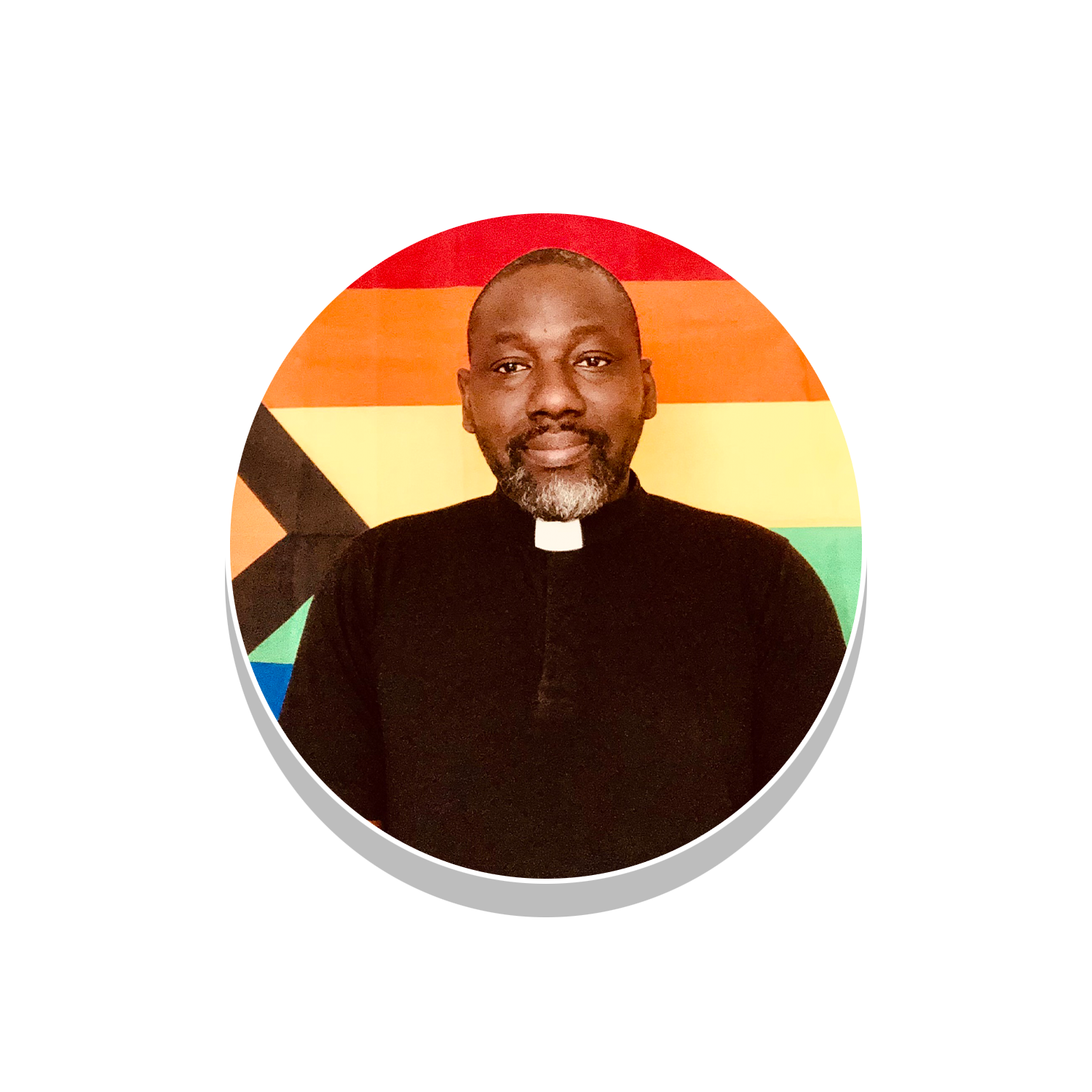What a Way to Live!
A few weeks ago I took several sheets of brightly coloured paper and wrote out Micah 6:8, putting one word on each of the sheets of paper. I then hid the pages around the sanctuary of the congregation I serve. When the time came during the service for the children to gather at the front, I invited them to run around the sanctuary and find the sheets of paper. When they returned to the front, we put the words in the correct order and learned this well known, beautiful, and challenging Bible verse together.
God has told you, O mortal, what is good; and what does the LORD require of you but to do justice, and to love kindness, and to walk humbly with your God? Micah 6:8
After the children helped teach the verse to the whole congregation, I gave each child a rock with the words “do justice, love kindness, walk humbly” written on the surface. The children grabbed the rocks and ran off to their class downstairs. About an hour later as I was sipping on my post church coffee in our fellowship hall, one of the children ran up to me, held up their rock in the air and exclaimed with joy “Pastor Ashley, what a way to live!” She then ran on to start blowing up air mattresses for our emergency winter shelter. We didn’t unpack her statement, but it has stuck with me, indeed, what a way to live.
Weeks later I watched as young people just a few years older than the young woman who flung that justice rock in the air, flood the Tennessee Capitol. These young people came to shout for change in the wake of a mass shooting at Covenant School in Nashville. In the same week, I watched footage of teenagers at the Kentucky Capitol protesting an anti-trans youth bill. God has told us what is good and yet over and over again our society chooses what is not good. Harm, fear, and discrimination can feel like they are winning. Yet, in our churches, our streets, and our capital buildings, the words of Micah echo again, down through the ages.
As I approach the prophet Micah I bring my queerness to the text. I bring my identity as an immigrant to the United States from Northern Ireland. I bring my identity of growing up in a land marked by violent conflict in the early years of my life. I bring my pain, joy, frustration, and hope. What is it that you bring as we encounter the prophet Micah? What does Micah bring as he moves to the centre of power to tell the elite of God’s judgment and hope?
Micah, whose name in Hebrew translates to “Who is like God”, hailed from the rural village of Moresheth, located about 23 miles southwest of Jerusalem.[1] The book of Micah is dated during the reigns of Kings Jotham, Ahaz, and Hezekiah (Micah 1:1). Micah was a contemporary of Isaiah; however, Micah was from a rural village, Moresheth, unlike Isaiah who was from the big city, Jerusalem. The book of Micah contains poetic words of judgment, honesty, hope, lamentation, and promise. Each time Micah warns against societal corruption and the mistreatment of the vulnerable, he follows these words with a message of hope. This pattern continues throughout the book. Micah, the prophet from a rural village, delivers a powerful and poetic condemnation of the corruption within society and religion, as well as the exploitation of the economically vulnerable.
How did Micah’s rural roots influence and steady him as he traveled to prophesy in Jerusalem? How do your roots influence you as you approach Scripture and live out your call today? As Micah speaks to the leaders and the prophets in Jerusalem, the stories, pain, and hopes of his people surround him. What stories do you, my friends, carry? Micah’s prophetic journey takes him from the edge of the city to the center. The land Micah came from had witnessed countless military attacks, his people would have known the pain and bloodshed of violence first hand. Daniel Smith- writes, “Micah is…deeply concerned about endless warfare and the human and economic costs of these constant battles and preparations for battle.”[2] His people have been harmed by the elite and he knows this is not the way God wants the people of Moresheth or the elite in Jerusalem to live. Micah’s words were for the eighth century BCE and they are also words for us today.
If Micah 6:8 is the most well known verse from this prophet’s book, then surely Micah 4:3-4 is the second most well known section,
“they shall beat their swords into ploughshares,
and their spears into pruning-hooks;
nation shall not lift up sword against nation,
neither shall they learn war any more;
But they shall all sit under their own
vines and under their own fig trees,
And no one shall make them afraid;
for the mouth of the Lord of hosts has spoken.”
Micah, coming from a rural village that experienced violence first time, bore witness to both swords and ploughshares. He has witnessed destruction and he has seen the soil tended to produce good gifts for his people. I keep thinking about the phrase of the child from my congregation as she held her Micah 6:8 rock in the air saying, “What a way to live!” Those five words echo in my soul as I read Micah 4:3-4. What a way to live, indeed, my friends. Many people in the queer community have also been witness to the destruction of violence in the world. Many people in the queer community have also been witness to the tender love of those who foster healing and growth.
Growing up in Northern Ireland I saw the modern day version of swords throughout my childhood. Night after night there were images of bombs exploding on the evening news, the military were present on the streets, and my people lived in the midst of battles. As a young queer person growing up in the Presbyterian Church in Ireland, I was also engaged in a battle to live into my full identity as a beloved, queer child of God. The sword of fear and the spear of shame dominated my early adult years. Until, the spirit of God helped me say “no more” and I wrote in my journal, “This is no way to live”.
A few weeks after writing those words, I decided to attend my first Pride parade in Belfast. I was terrified. I was still in the closet and didn’t want anyone to see me there, especially anyone from my church. I drove into Belfast City Center and sat in my car as people danced, marched, and lived a life I had not previously imagined. I watched my people march through the Belfast rain bringing the city to life. A city and a people that knows a thing or two about pain. I wasn’t ready that day. But when I got back to my apartment on the other side of the city. I got out of my car and a baptism of sorts had occurred. Yes, there was glitter on my car. Even before I was ready, my people were calling me to come and join the party. To come and join the resistance. The protest that was started by black trans women in the streets of New York City, found this twenty something year old in Belfast. Sprinkling the invitation of glitter. What a way to live!
So, my friends, as we hear Micah’s words in 2023 may they lead us to a glitter filled protest march, not one of corporate sponsors, but one that makes the elite nervous. May we march on, grounded in the calling of the rural village poet-prophet, Micah, as we do justice, love kindness, and walk humbly with God. What a way to live, my friends. May it be so.
[1] Daniel L. Smith-Christopher, Micah (The Old Testament Library) (p. 1). Presbyterian Publishing Corporation. Kindle Edition.
[2] Daniel L. Smith-Christopher, Micah (The Old Testament Library) (p. 18). Presbyterian Publishing Corporation. Kindle Edition.

Ashley is a lifelong Presbyterian: beginning her journey in the Presbyterian Church in Ireland before moving to the United States in 2011. Ashley grew up in Larne, a town on the North East coast of Northern Ireland. She has a fierce love of the coastlines, people, and stories of her homeland. It was not an easy decision to leave; however, her call to ministry led her to the PC(USA). The Presbyterian Church in Ireland does not ordain openly queer people.
Ashley’s journey in the United States began in Nashville, TN where she served as a Young Adult Volunteer (YAV). She returned home for one year after her YAV year. This year included spending three months on the Scottish island of Iona. She returned in 2013 and began her studies at Vanderbilt Divinity School. In 2018 Ashley was the first openly queer person ordained as a Minister of Word and Sacrament by the Presbytery of Middle Tennessee. During her eight years in Nashville Ashley became involved with ministry on Tennessee’s Death Row, worked in the Juvenile Justice Field, and served as a Chaplain in a drug and alcohol treatment center. Ashley also met her beloved wife Erica in Nashville and they have been married since 2015.
In 2019, Ashley and her wife, Erica, moved to Long Island to join the Setauket Presbyterian Church staff. Ashley has served for nearly four years as their Associate Pastor for Community Outreach. In her time in Setauket she has directed the congregation’s furniture ministry, Open Door Exchange. In June 2023 Ashley and Erica will be moving to Chicago where Ashley will begin serving as the Pastor of Lake View Presbyterian Church.
Ashley is a member of the National Board of Directors for More Light Presbyterians. She is a passionate Irish rugby fan, enjoys weightlifting, and, in the words of her wife, “has a laugh that can be heard from miles away.”



Unbound Social